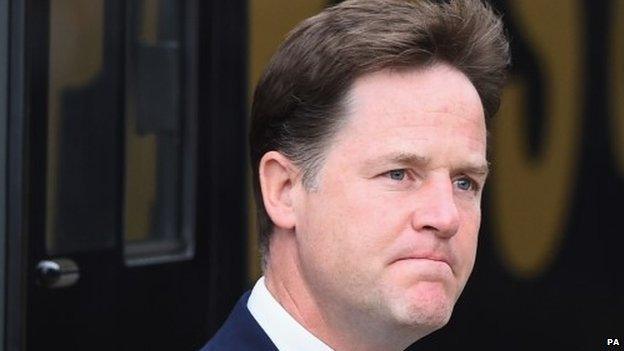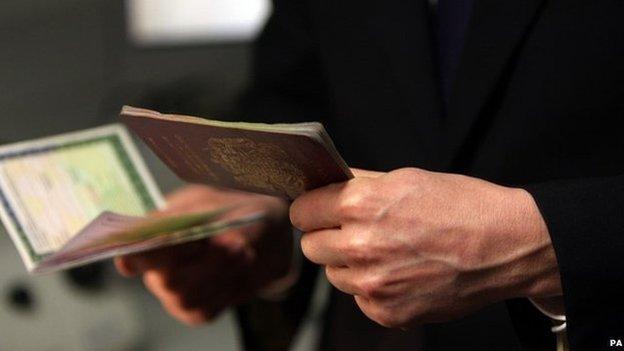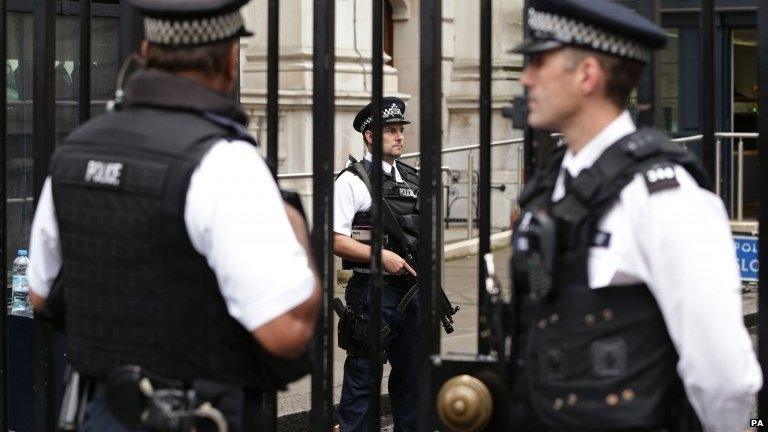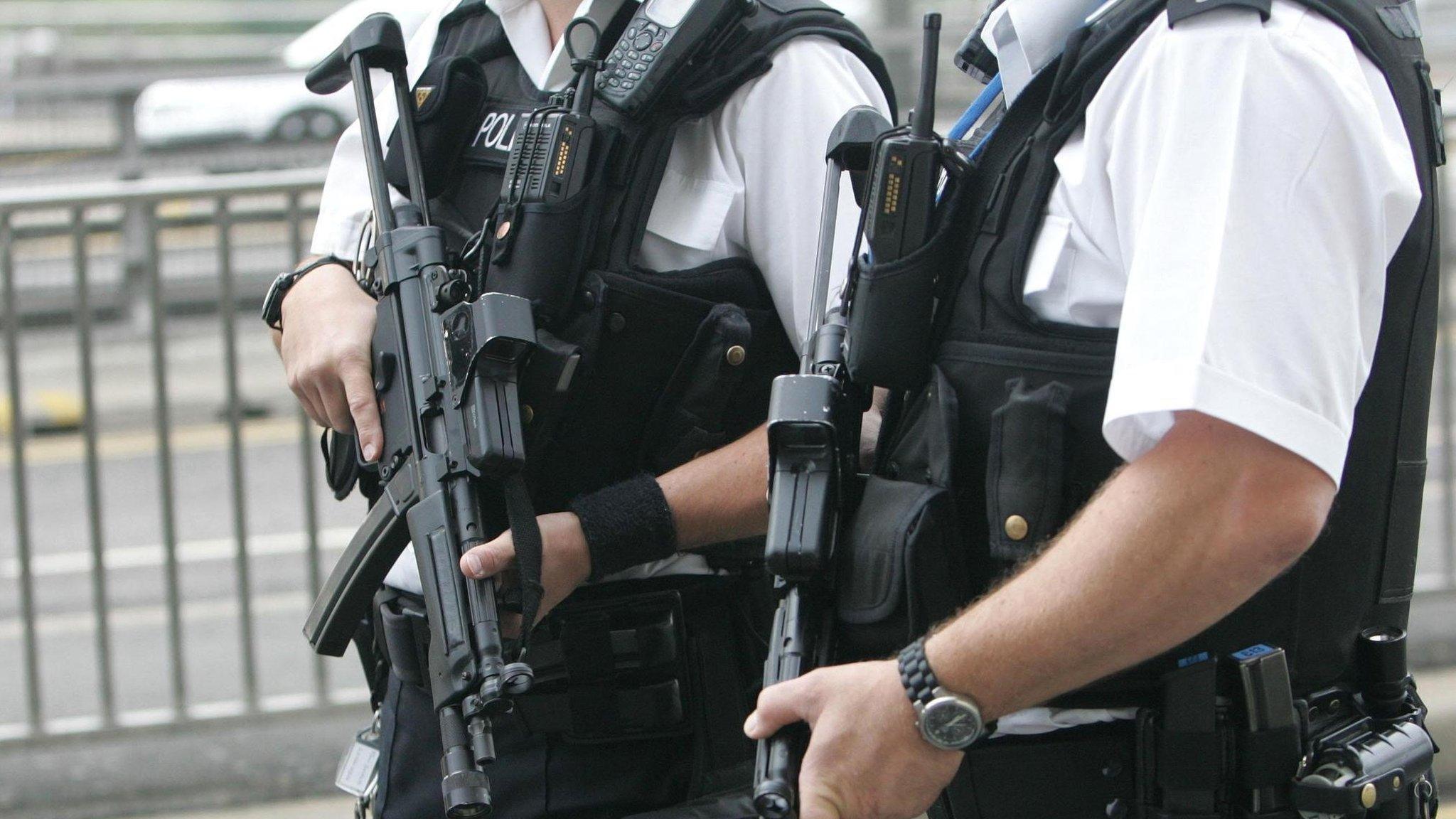Clegg: UK can tackle terror threat within the law
- Published

Mr Clegg rejected reports that he had watered down the government's response
The UK can take action to stop British jihadists re-entering the country without flouting international law, Deputy PM Nick Clegg has insisted.
He told the BBC it was possible to have "proportionate, targeted and effective" measures to stop suspects returning.
While the option of removing passports would be examined, the UK always needed to act within the law, he said.
He also said the UK would reserve the right to take military action in Iraq without consulting Parliament first.
Mr Clegg said he supported the "convention" that the government should seek MPs' approval before undertaking any military action, but he told BBC Radio 4's Today there may be circumstances where emergency action had to be taken quickly where it might not be "pragmatic" to do so.
'Legal principles'
BBC political editor Nick Robinson said there was a growing sense the UK might be willing to take part in "punitive action" against Islamic State fighters in Iraq.
Prime Minister David Cameron did not rule out UK participation in further air strikes when he updated MPs on events in the Middle East on Monday.

The government's proposals are
Legislation to enable police to temporarily seize people's passports at the border to investigate their reasons for travelling overseas
All-party talks on drawing up "discretionary and targeted" powers to prevent suspected British terrorists from returning to the UK
Airlines to comply with the UK's no-fly list arrangements, providing information on passenger lists and complying with UK security screening requirements
Terror suspects in the UK to be subject to "stronger locational constraints" - either forcing them to move to a new area or excluding them from certain parts of the country
All those subject to these terrorism prevention and investigation measures (Tpims) to be required to engage in a programme of de-radicalisation

Mr Clegg defended planned new anti-terror measures after the reviewer of terror laws, David Anderson, said there were "significant difficulties" with preventing UK-born terror suspects from re-entering the country.
The prime minister has pledged to hold all-party talks on whether it is possible to remove the passports of UK nationals returning from conflict zones likely to present a threat to domestic security.
But Mr Anderson said there were legal issues and warned that the UK could end up in a "game of pass the parcel" with other countries' suspected terrorists.
Mr Clegg said it was right to "examine the options" but insisted: "We are not going to do something which flouts international and domestic law. Of course we can't do that. We must act within the law."
Rhetoric vs reality
He rejected claims that his party, the Liberal Democrats, had watered down the government's response by blocking plans which could result in terrorist suspects effectively having their citizenship removed.
"It is not a question of whether I will let it happen. It is important to underline this is not an argument between two political parties.

Officials can already block foreign nationals and those with dual citizenship entering the UK
"This is about a government across the coalition seeking to do what is proportionate, effective and targeted to keep this country safe in keeping with our long-standing legal and judicial principles."
He said it was possible to "square the circle" by giving the police greater powers to temporarily confiscate the passports of people suspected of travelling to Iraq and Syria to fight as well working with airlines to stop returning fighters from boarding planes to return to the UK.
'Disarray'
He also insisted plans to re-introduce powers to relocate terror suspects under the government's terror prevention and investigation measures was not a return to the system of control orders scrapped by the coalition in 2011.
Labour said the government was in "complete disarray" over the way forward, with no guarantees of new laws or details about when any new powers would come into force.
"Over the weekend, the government said they intended to block suspected British terrorists from returning to the UK," said shadow home secretary Yvette Cooper.
"Yesterday they admitted they had to comply with international law and could not remove citizenship after all. But the prime minister still claimed to have vague plans to stop people even though no-one at all can explain what he is talking about."
While he sensed the terror response was not a source of tension between the coalition partners, Nick Robinson said there was a striking mismatch between the government's rhetoric last week about what it was intending to do and the actual detail of what had been announced.
- Published2 September 2014

- Published1 September 2014
- Published29 August 2014
